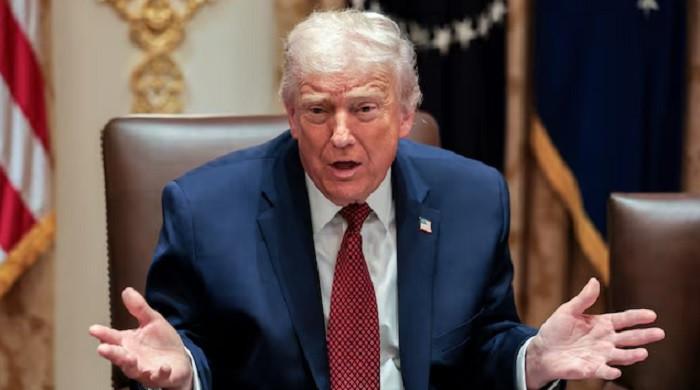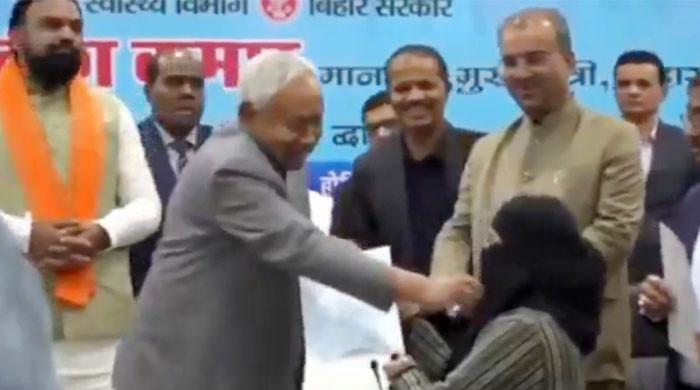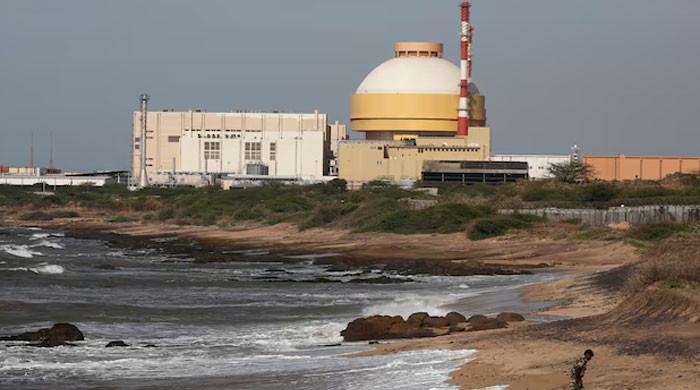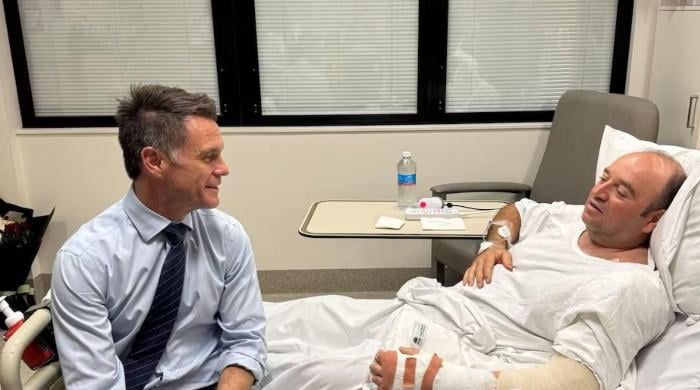Omicron variant could dent global economic growth: IMF
We are likely to see some downgrades of our October projections for global growth, says Kristalina Georgieva
December 05, 2021
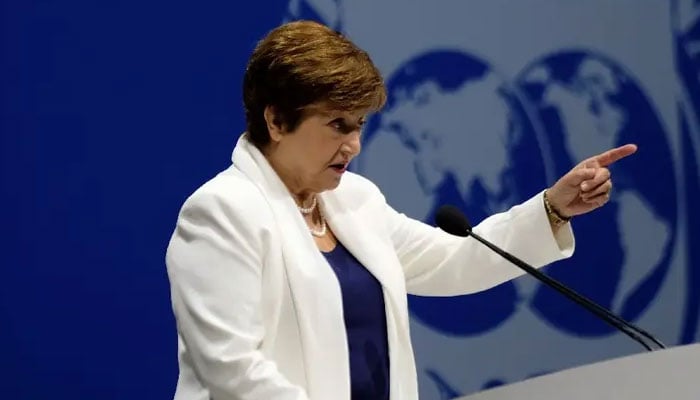
- IMF is likely to downgrade its global economic growth projection due to emergence of Omicron variant, says Georgieva.
- IMF said in October that it expected the global economy to grow 5.9% this year and 4.9% next year.
- Georgieva says tariff reductions are a "useful tool" to help control inflation.
WASHINGTON: The International Monetary Fund (IMF) is likely to downgrade its global economic growth projection due to the emergence of the new Omicron variant of the coronavirus, said its Managing Director Kristalina Georgieva Friday.
Addressing the Reuters Next conference, Georgieva said, "A new variant that may spread very rapidly can dent confidence, and in that sense, we are likely to see some downgrades of our October projections for global growth."
The IMF said in October it expected the global economy to grow 5.9% this year and 4.9% next year, pointing then to the threat of new coronavirus variants as increasing uncertainty about the timeline for overcoming the pandemic.
Omicron has spread rapidly to at least 40 countries since it was first reported in South Africa last week, officials say, and many governments have tightened travel rules to try to keep it out.
Much remains unknown about Omicron. Researchers said it could have picked up genetic material from another virus, perhaps one that causes the common cold, which would allow it to more easily evade human immune system defences.
Parts of Europe and the United States are grappling with a wave of infections of the more familiar Delta variant. The new strain could further destabilize economies that are still emerging from COVID-19 related lockdowns and disruptions.
A corporate Christmas party in the Norwegian capital Oslo resulted in at least 13 infections, making it the biggest outbreak outside of South Africa, officials said.
The World Health Organization's (WHO) chief scientist Soumya Swaminathan told Reuters Next that the fast-spreading variant would have to become more transmissible to out-compete Delta, which accounts for 99% of current transmissions.
"We need to be prepared and cautious, not panic, because we're in a different situation to a year ago," she said.
WHO's emergencies director Mike Ryan said there was no evidence that existing vaccines needed to be modified to fight Omicron. He said officials should work on getting more people inoculated with vaccines currently on the market.
"We need to focus on getting people most at risk vaccinated," Ryan said at a social media event.
However, WHO spokesman Christian Lindmeier told a United Nations briefing in Geneva that vaccine makers should prepare for the likelihood of adjusting their products.




